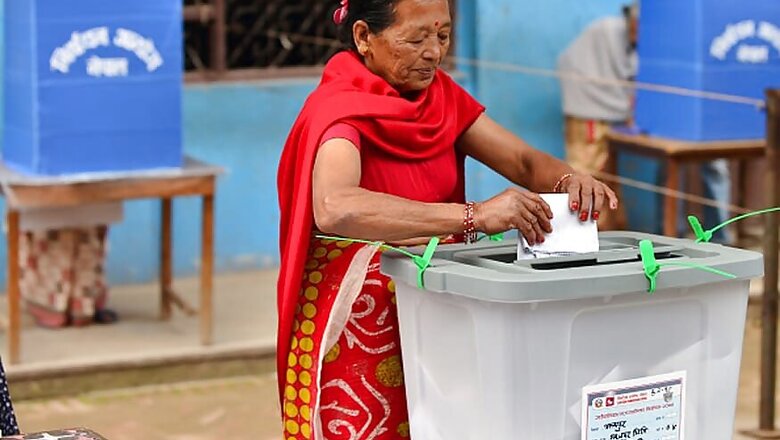
views
Kathmandu: Voting began Sunday in Nepal's first local elections for two decades, a landmark moment in the country's fraught transition to democracy.
Polls opened in three provinces at 7:00 am (0115 GMT), with nearly 50,000 candidates vying for the position of mayor, deputy mayor, ward chairman and ward member in 283 local municipalities.
The local representatives were last elected in 1997 and their five-year terms expired at the height of the brutal Maoist insurgency.
The ten-year war ended in 2006 and the country began a rocky transition from a Hindu monarchy to a secular federal republic, which has seen it cycle through nine governments.
The long gap between polls has left an institutional void at local level, which has seen graft become a way of life in Nepal, hampering the delivery of basic services as well as the recovery from a devastating 2015 earthquake.
Long queues started to formed early outside polling stations in the capital Kathmandu, many eager voters sheltering under umbrellas from the harsh sun.
"It is difficult to expect much from our politicians - they have always been selfish and not worked for the people - but I hope that with this election things will change," housewife Shova Maharjan, 41, told AFP after casting her vote in the capital.
While the youth vote is seen as key in undermining the grip of the three main political parties, the elderly were also out in force, including an 105-year-old man who cast his ballot in Gorkha, the epicentre of the devastating 2015 earthquake, according to the election commission.
Many independent candidates are standing for seats, while a number of small reformist parties are also expected to grab some votes from the traditional political heavyweights.
DRAWN-OUT PEACE PROCESS
The vote has been split into two phases because of unrest in the southern plains bordering India, where the minority Madhesi ethnic group is refusing to take part until an amendment to the constitution is passed.
The remaining four provinces, considered potential flashpoints for election-related violence, will vote in the second phase on June 14.
As part of the deal that ended the civil war, a new constitution was written and finally adopted in September 2015, nearly a decade after the end of the conflict.
The charter mandated that local elections, followed by provincial and then national elections, be held by January 2018 - the final step in the drawn-out peace process.
But the constitution sparked protests by the Madhesi community - who say the document leaves them politically marginalised - and led to a months-long blockade of the India-Nepal border in 2015 that caused a crippling shortage of goods across the country.
The Madhesi threatened to boycott the local polls unless the constitution is rewritten. This forced the government to split the vote into two phases.
















Comments
0 comment